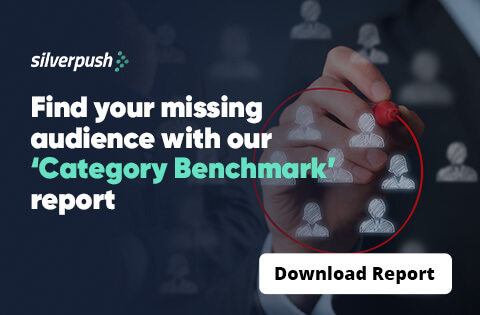$5.6 billion of digital ad spend was wasted in 2022: Are you Doing it Right? | 21 Nov, 2023
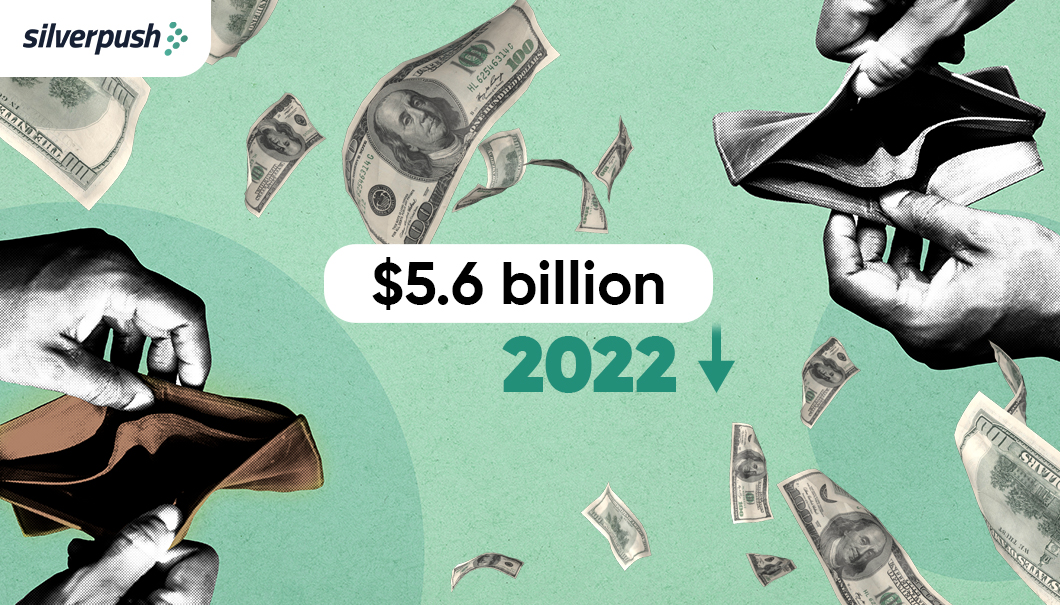
As someone who creates a bunch of ads, both traditional ones and some really out-there experimental ones, you’ve always had this nagging question in your head. It’s like, are your efforts actually hitting the mark, or are they just disappearing into the online void?
According to a report of Digital Media Wastage by Next&Co’s, a staggering $5.6 billion of digital ad spend was wasted in 2022, constituting 41% of the total digital ad spend. Specifically, in the realm of connected TV, LG Ads discovered that brands often allocate 50% of their campaign budget to target just 10% of the available audience.
Against the backdrop of current economic uncertainty, the urgency to address media wastage becomes even more apparent. It is crucial to invest each dollar intelligently, ensuring that it delivers maximum value.
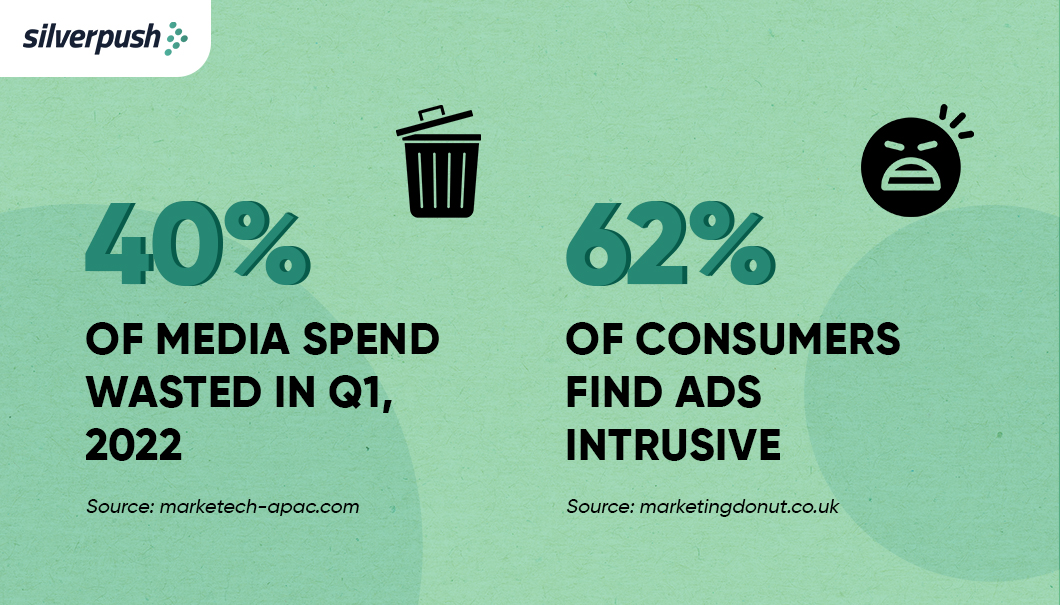
What does “media wastage” actually mean?
To put it simply, media wastage means utilizing your marketing budget to reach consumers who aren’t your intended audience. It’s like buying winter coats for people living in a tropical climate – not the most efficient use of your resources, right? Media wastage can mess up any digital campaign, whether it’s a pay-per-click or a video ad, so everyone needs to watch out for it.
And it’s not just about the money. Ads placed alongside misaligned content can actually make consumers less likely to buy, whereas matching ads with the right context can boost the likelihood of purchase by 8%.
Now, I can almost hear you asking: “If my ad ends up reaching folks who aren’t really interested in my product, how much damage could it really do?” In the world of marketing, every cent matters. Especially, when we are talking about billions of dollars going down the drain every year, it’s not just a small problem. It’s like a big wave that’s sweeping away potential returns – your potential returns.
How to Maximize Impact and Reduce Media Wastage from your Advertising Campaigns?
It’s not only about showcasing your creative skills or staying in sync with the newest trends; it’s also about effectively managing your resources. As mentioned earlier, every dollar wasted in media inefficiency could have been used for a more targeted and influential campaign. That money could have gone into improving your product or elevating the overall customer experience.
Beyond One Size Fits All: Mastering Audience Reach with Custom Creatives
Effectively connecting with audiences through personalized creative content is crucial. According to a study by Barraza, contextually aligned ads were 93 percent more memorable than misaligned ads. Thus, it clearly depicts that aligning ads with congruent content, rather than simply placing ads where there are larger audiences, ensures a higher return on investment.
By utilizing top-notch brand suitability and contextual targeting technologies like Silverpush, brands and advertisers can be confident that their purchased impressions match with the most fitting content. This strategic approach ensures that every dollar spent yields the maximum number of positive impressions through brand suitability and contextual targeting.
It’s essential for brands to recognize that the era of niche targeting is here. Campaigns now focus on delivering custom-made creativity to smaller, niche audiences through brand suitability, contextual targeting, and inclusion lists. Audiences respond more positively to advertising content that resonates with their interests, while a broad approach only results in wasteful spending.
Inclusive Precision: The Path to Sustainable Advertising and Waste Reduction
In an era of careful advertising, some brands and advertisers have avoided addressing crucial topics such as race, gender, and religion by using block lists. Unfortunately, this approach also results in creators focusing on these issues, mainly from diverse communities, being blocked, leading to the exclusion of their content from reaching diverse audiences.
The significance of diverse audiences cannot be overstated. Overly cautious block lists have, for too long, prevented these potential audiences from engaging with brands’ content. According to a new survey from Top Design Firms, nearly two-thirds of consumers (64%) are at least somewhat likely to purchase a product immediately after seeing it advertised if the brand embodies diversity and inclusion.
Developing customized and well-researched inclusion lists enables brands and advertisers to support diverse creators and audiences. Investing in diverse audiences through inclusion lists not only aligns with the principles of inclusion and diversity but also proves financially beneficial by reducing media wastage.
Aligning Your Message with Consumer Preferences
While progress has been made in addressing underrepresentation in video advertising content, the issue of media wastage extends beyond mere representation. It’s time for brands and advertisers to adopt diverse and conscious strategies in every aspect of their campaigns, from building and ideation to targeting and brand suitability methodologies.
For multicultural marketers, being able to rely on high quality ad tech that can help you identify and target your chosen audience is a must. This means looking for partners that not only have firsthand experience and expertise working with the audiences you’re trying to attract but also have a sophisticated platform that will enable you to reach them at scale.
Mirrors’s cutting-edge AI-powered technology uses a combination of contextual signals to reach your most relevant consumers at the right moment/context. The cutting-edge visual intelligence identify multicultural triggers that can work wonders for your ad campaign:
Faces of micro-influencers – Due to their ability to connect with niche communities and engage with their followers on a more personal level, brands can leverage Mirrors hyper contextual targeting solution to identify key contexts like celebrities of micro-influencers for a high level of engagement.
Logos of minority communities-owned brands – By identifying key contexts like brands of minority community-owned brands, channels & other relatives in your advertising demonstrate a commitment to representation and inclusivity. It sends a strong message that your brand supports and values diversity, which can resonate positively with multicultural audiences.
Language – Recognizing the linguistic diversity within multicultural communities is important and audiences seek out brands that localize their content to give it a more personal touch. Language-specific advertising demonstrates respect for cultural diversity and enhances the overall impact of the campaign.
Regional channels – Regional channels often create content that is specific to the local culture, language, and interests of their audience. By advertising on these channels, brands can align their messaging with the cultural context and create content that resonates with the viewers. This relevance enhances the effectiveness of the advertising campaign and fosters a stronger connection with the target multicultural audience.
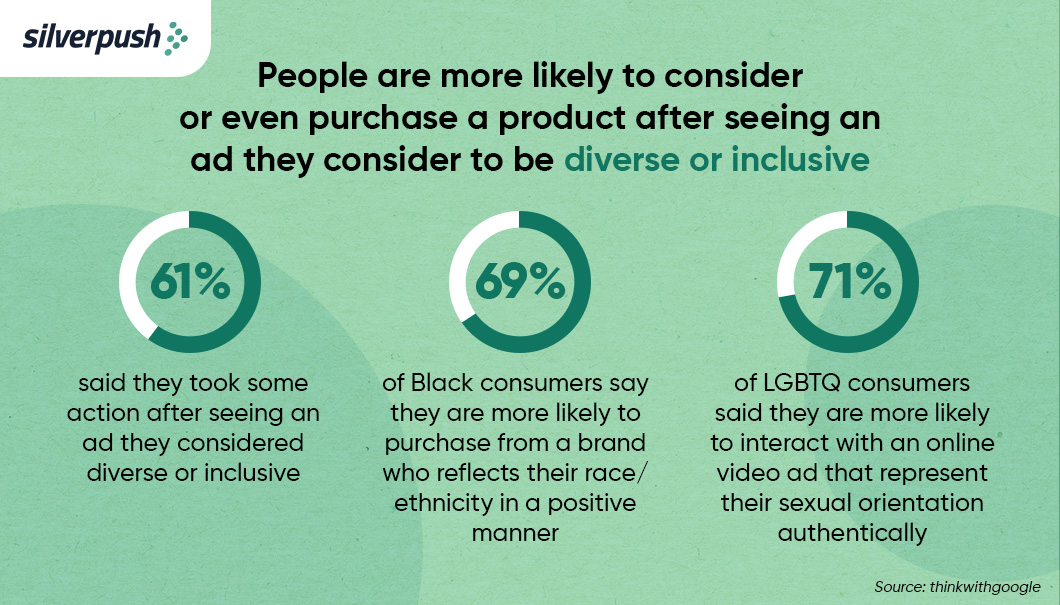
These considerations go beyond words and contribute to the impactful social messages brands convey, all while maximizing the ROI for campaigns.
Media wastage is a widespread industry challenge, but addressing it requires a reassessment of advertising practices. An essential step is ensuring a brand’s content resonates with the correct audiences through high-standard brand suitability and contextual advertising. Brands and advertisers should break free from the constraints of cautious advertising by embracing more rewarding inclusion lists. Taking a conscious and holistic approach to advertising is crucial for reducing media wastage and fostering a positive advertising ecosystem for everyone involved.
Want to cut down on media waste and boost your ad campaigns’ ROI? Reach out to us to get started!
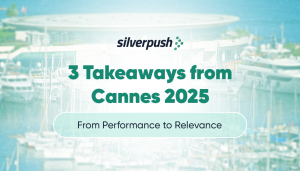
BLOGS
3 Takeaways from Cannes 2025: From Performance to Relevance
Last month, Silverpush team kicked off the #SummerOfContext in a big way at the Cannes Lions International Festival of Creativity 2025. To start off the week, we launched a brand new contextual targeting solution for TikTok to help brands with brand safety and higher relevance. We also announced our ...

BLOGS
Partner Spotlight: Ben Salaman, Senior Strategist at PB&
1. Tell us about your agency. What makes you stand out? PB& is a small, independent agency that was founded by people who have spent a lot of their careers in larger agencies. We saw that creativity and efficiency often tend to suffer due to silos, so our founder decided to ...
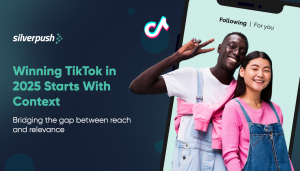
BLOGS
How to Win at TikTok Advertising in 2025 With Contextual Targeting
TikTok is no longer just a platform for viral dances and trending audio, it’s now a serious force in the advertising world. With nearly 2 billion users and over 1.8 billion reachable through ads, it’s where your audience is spending their time. But while TikTok delivers unmatched reach, it hasn’t ...




